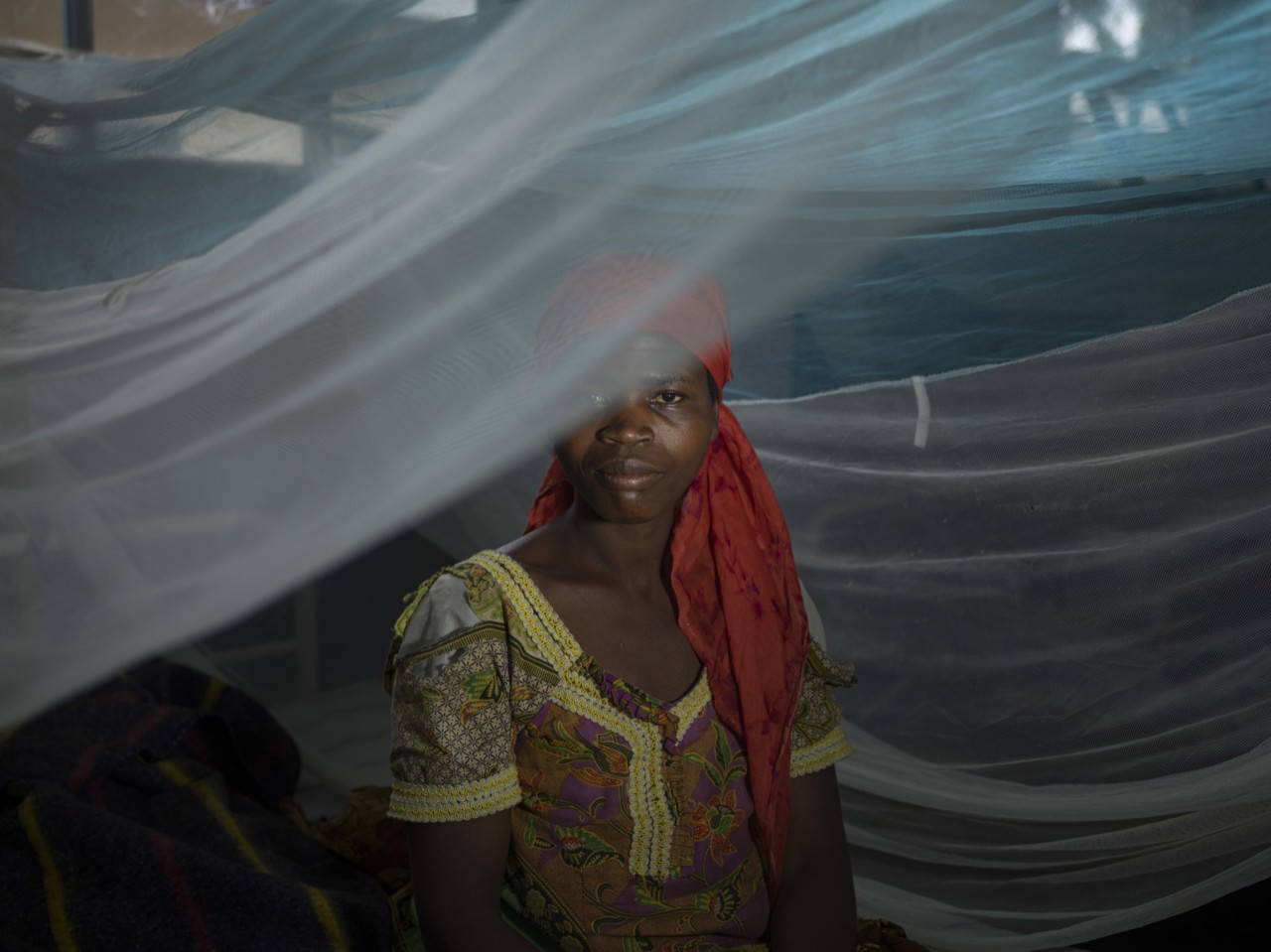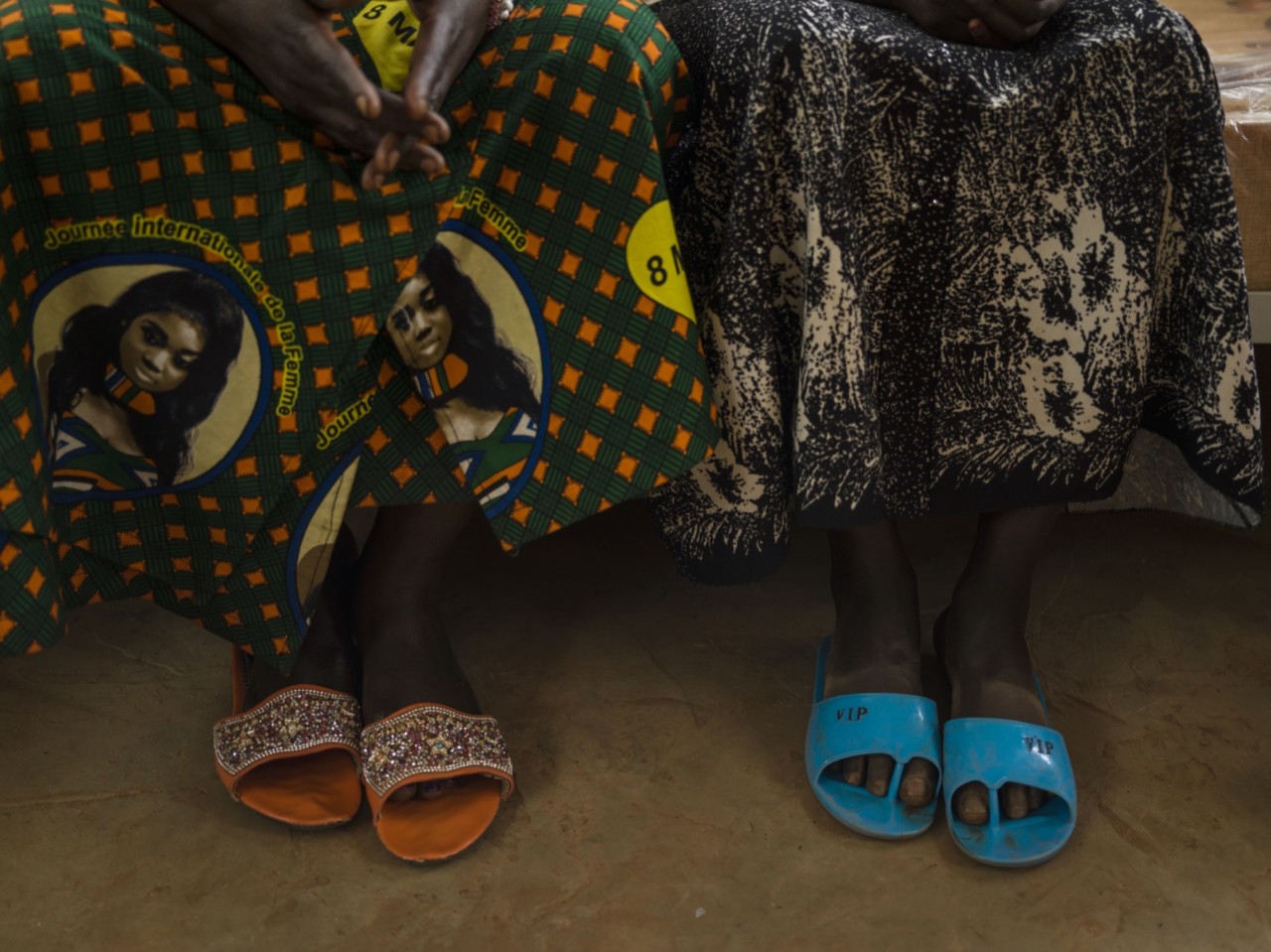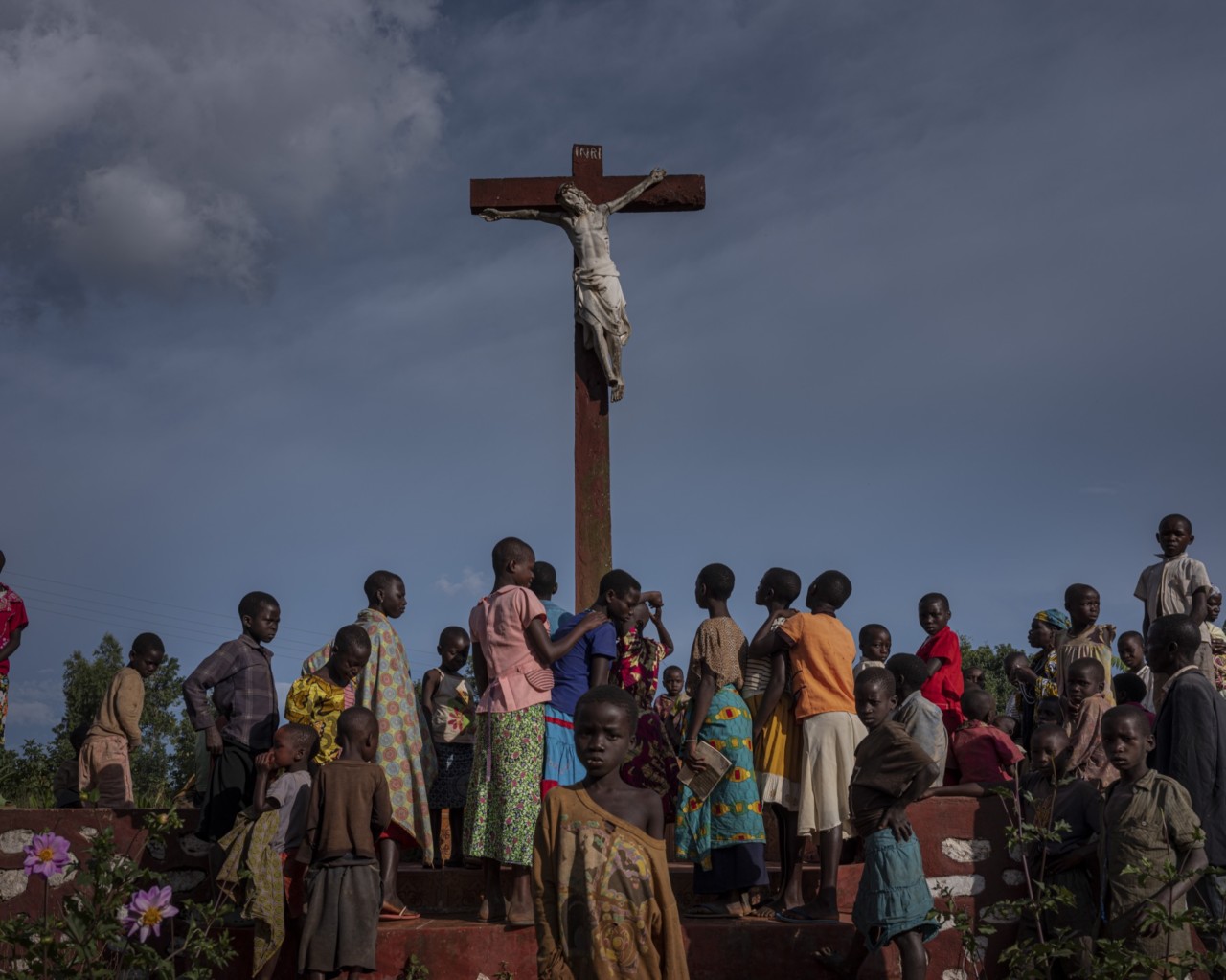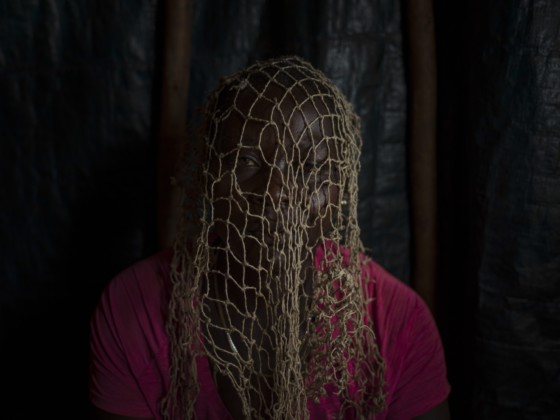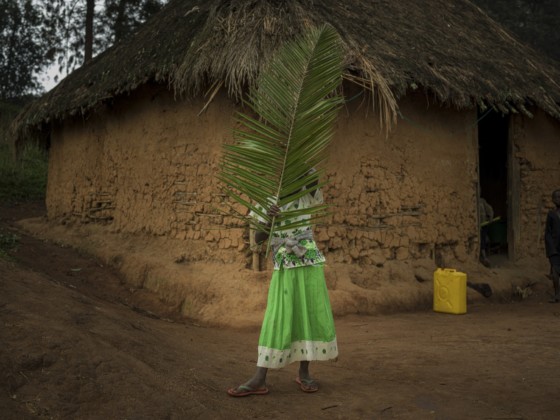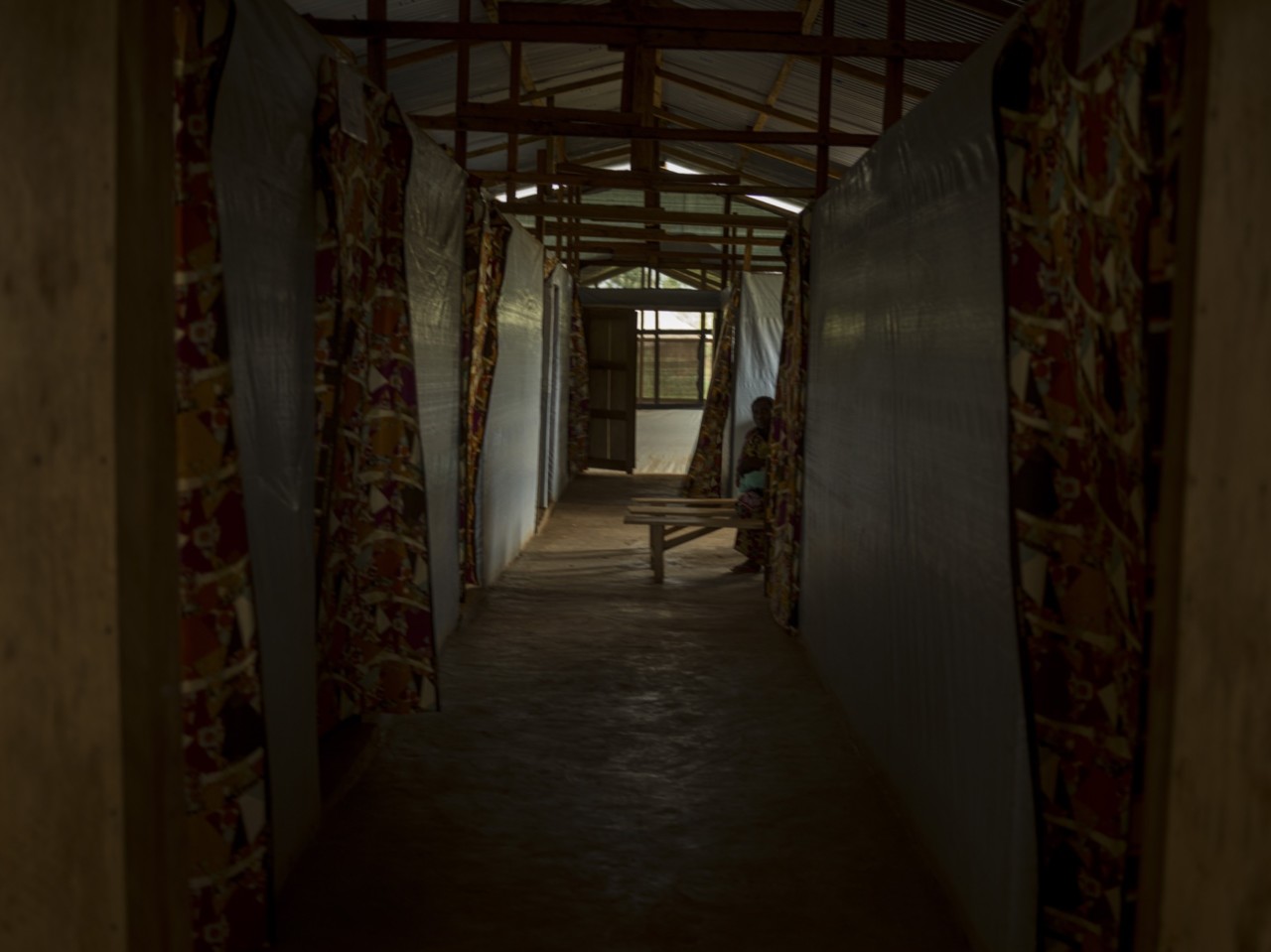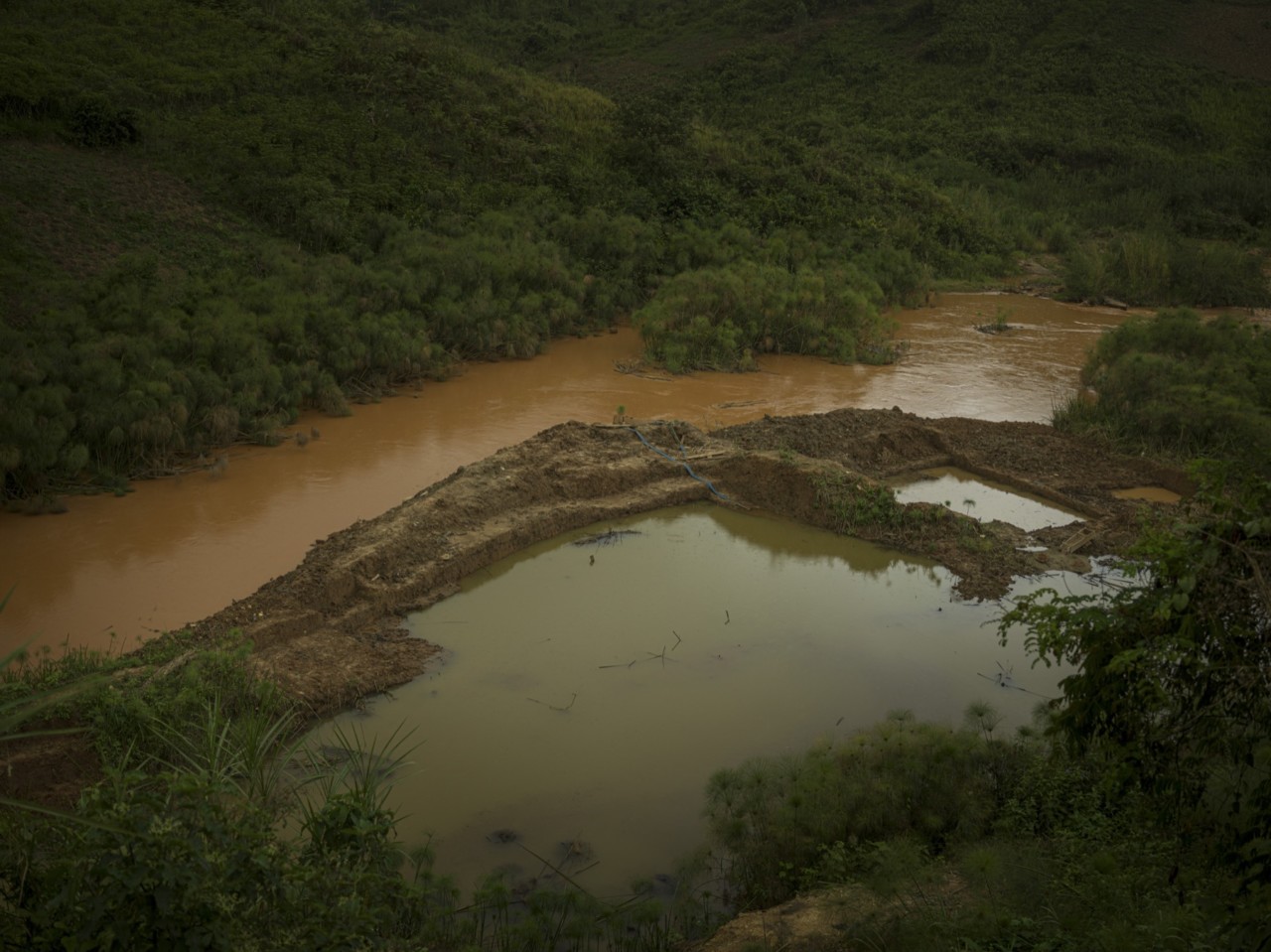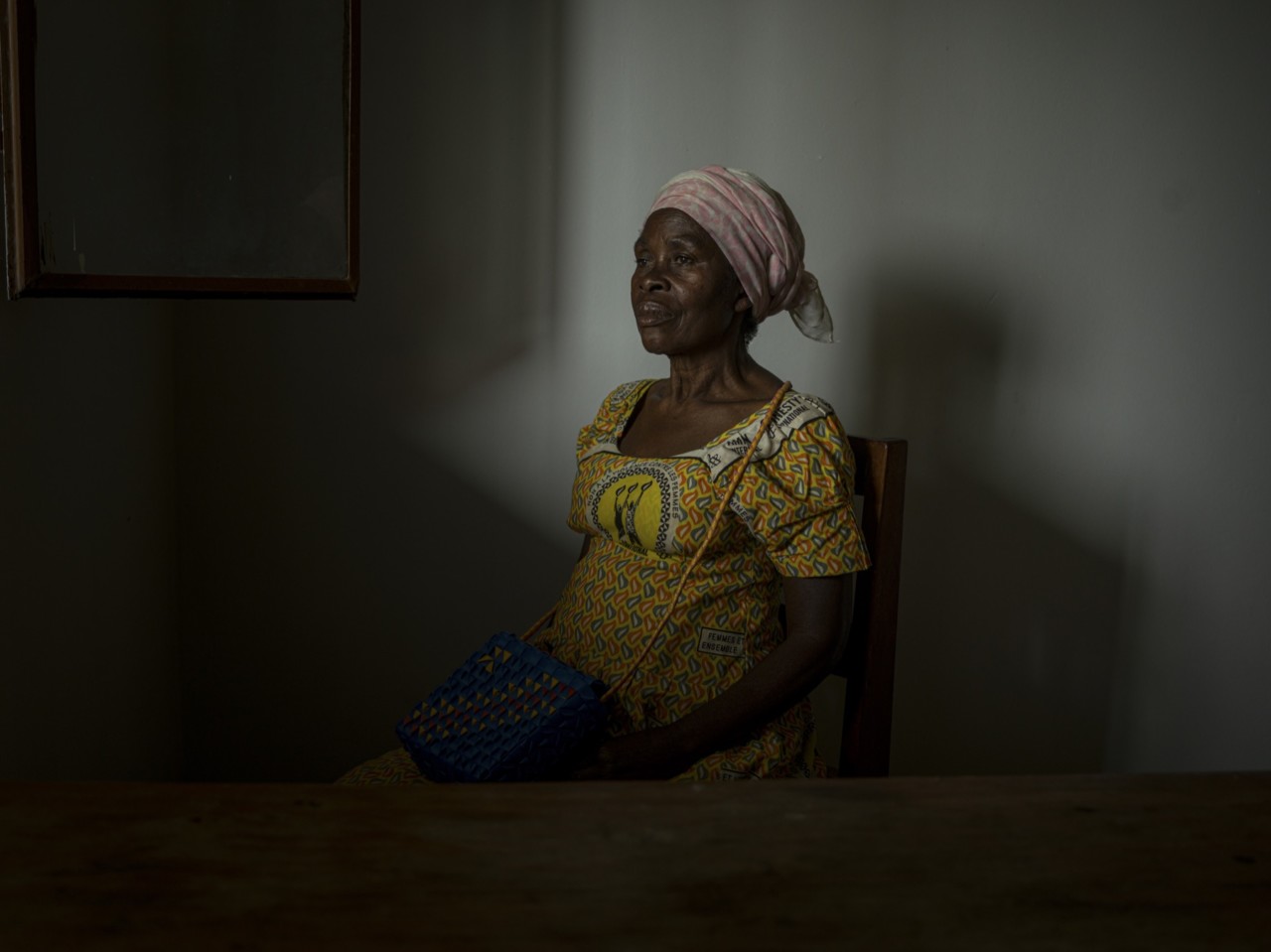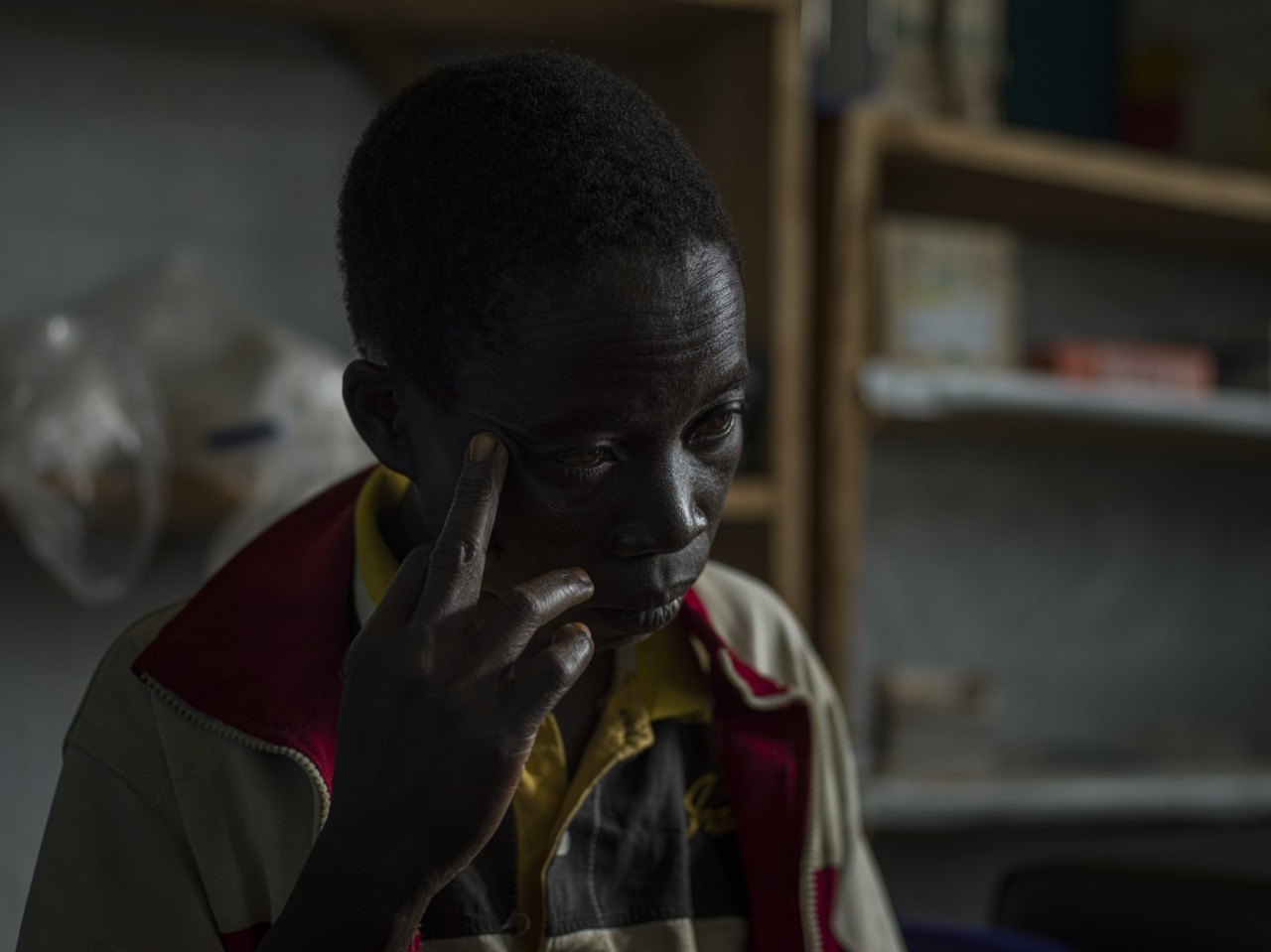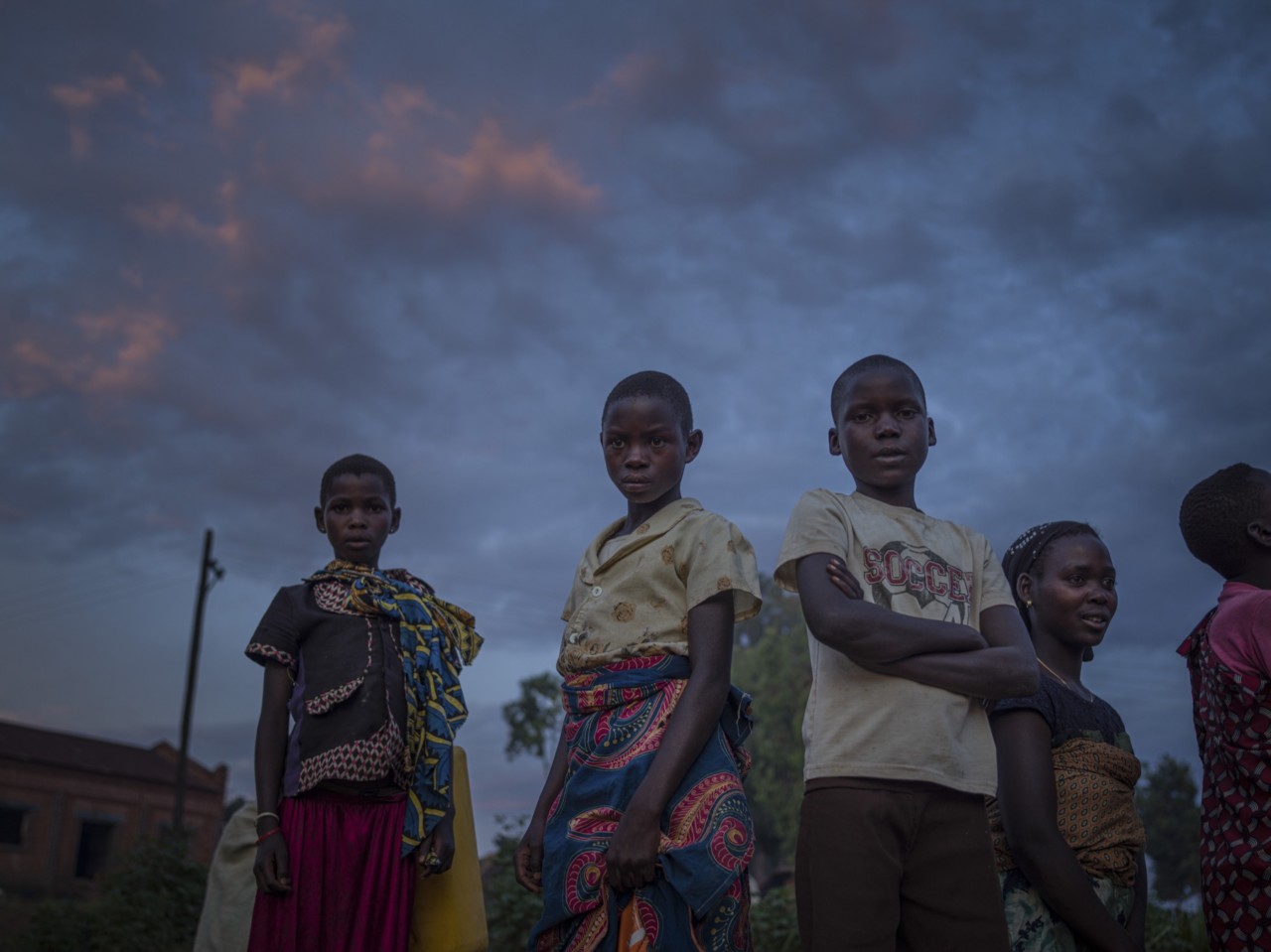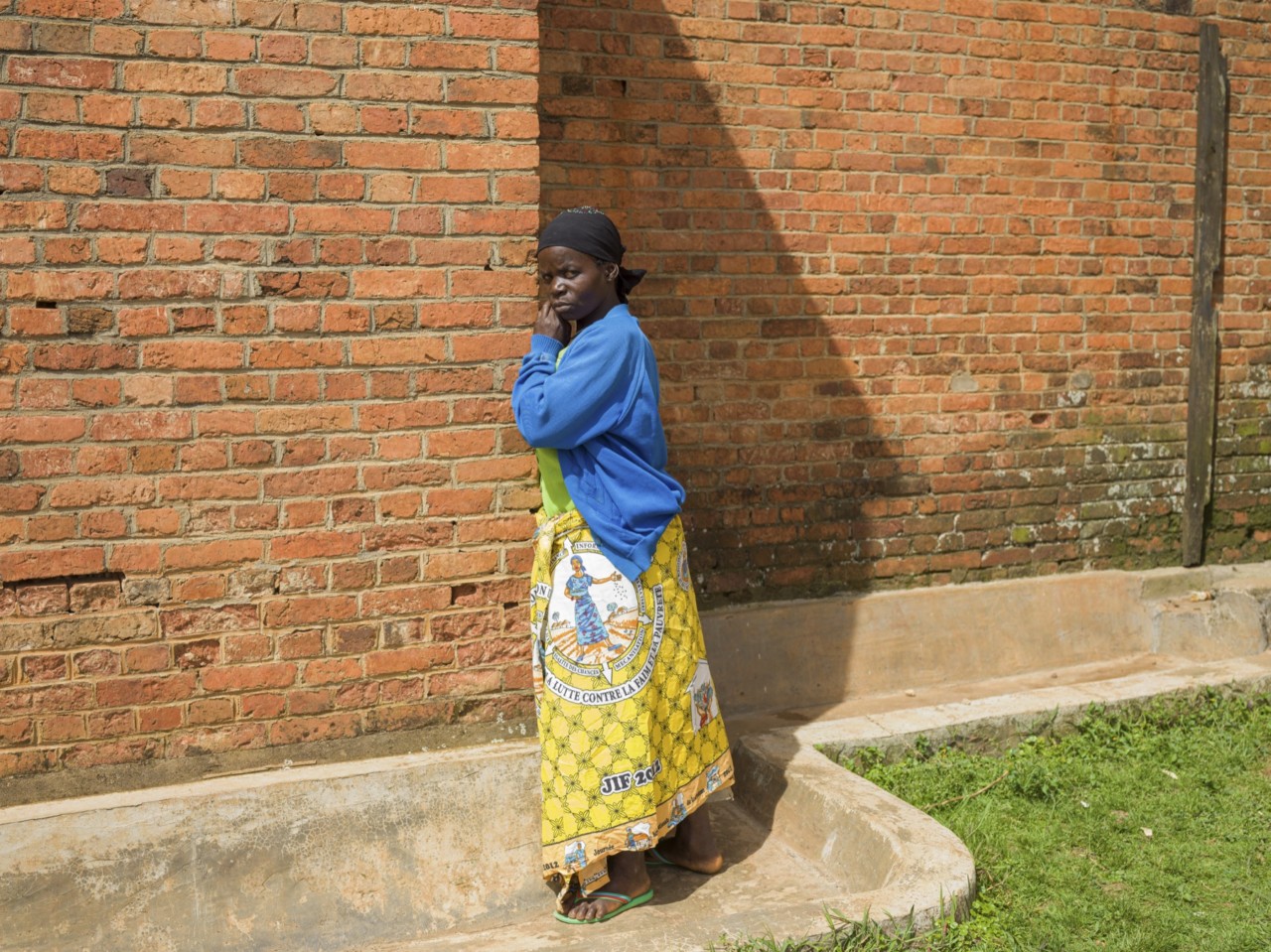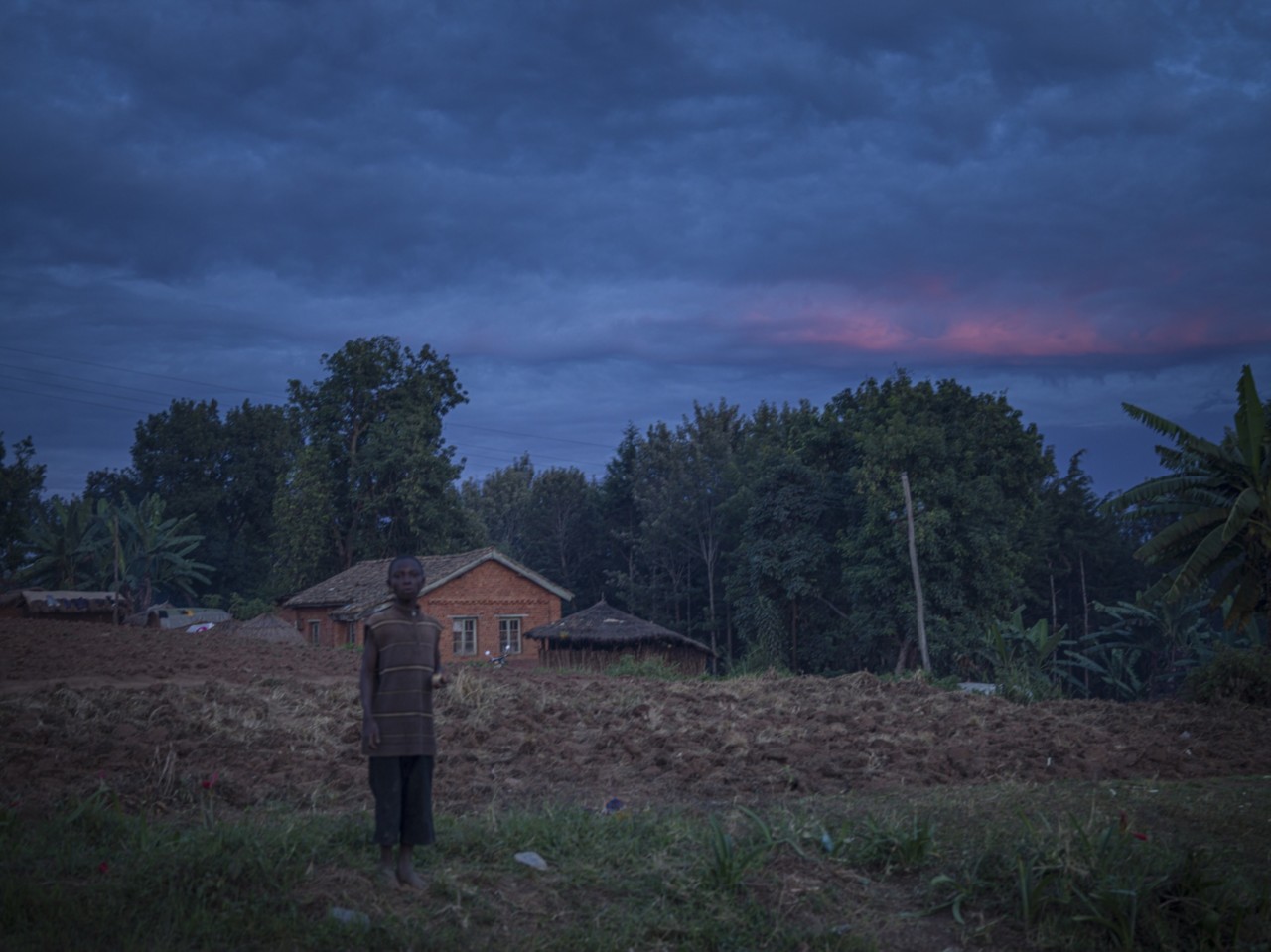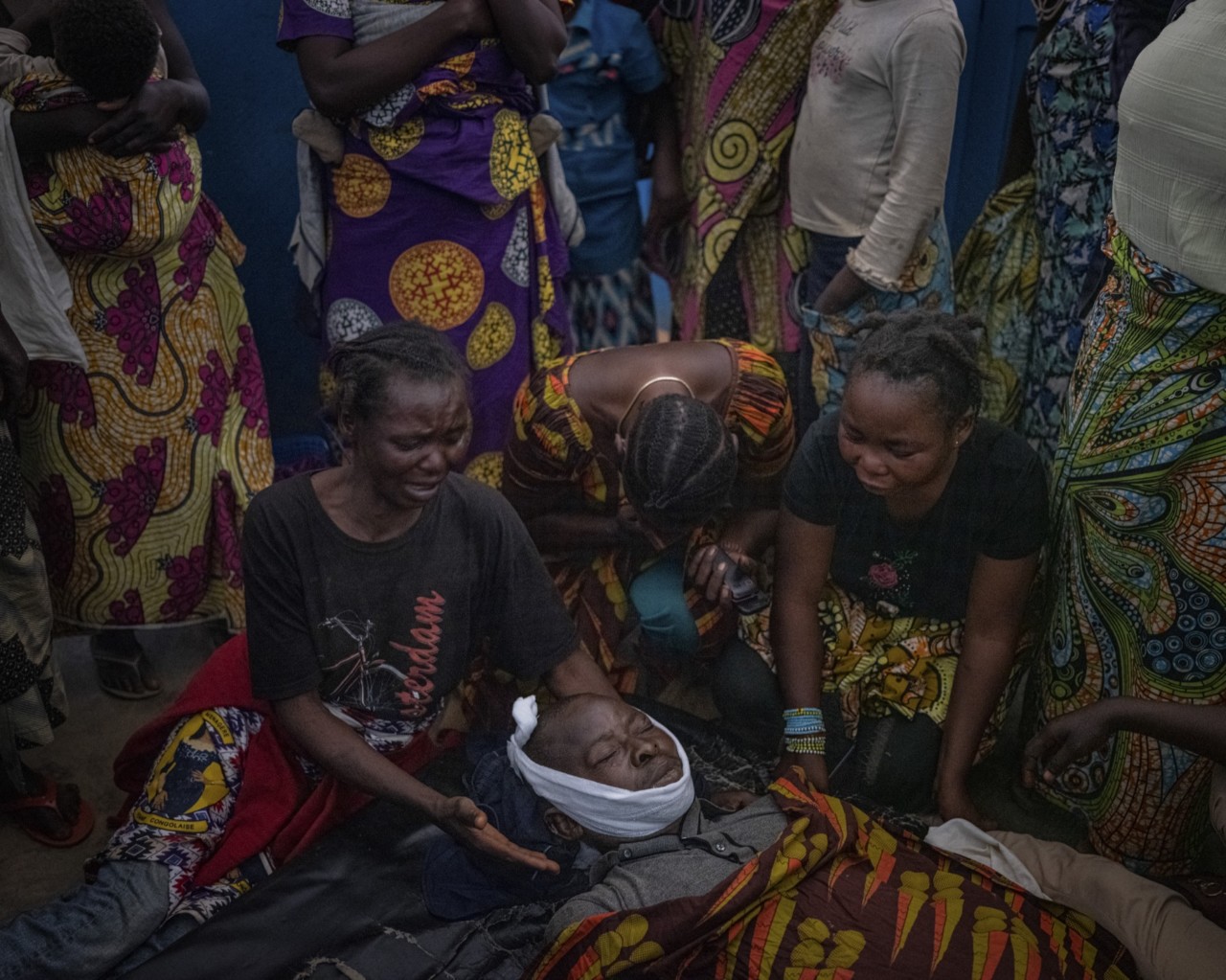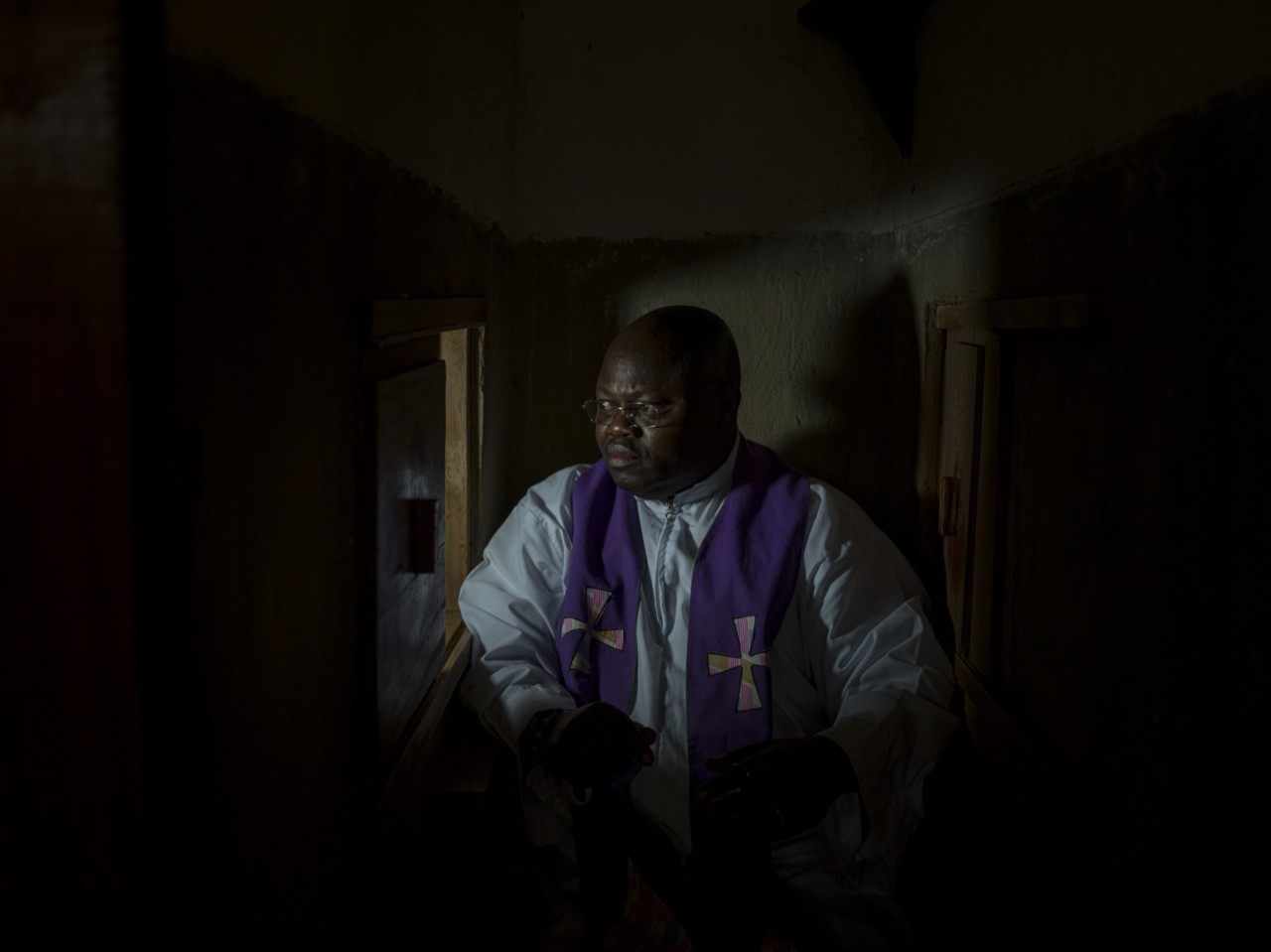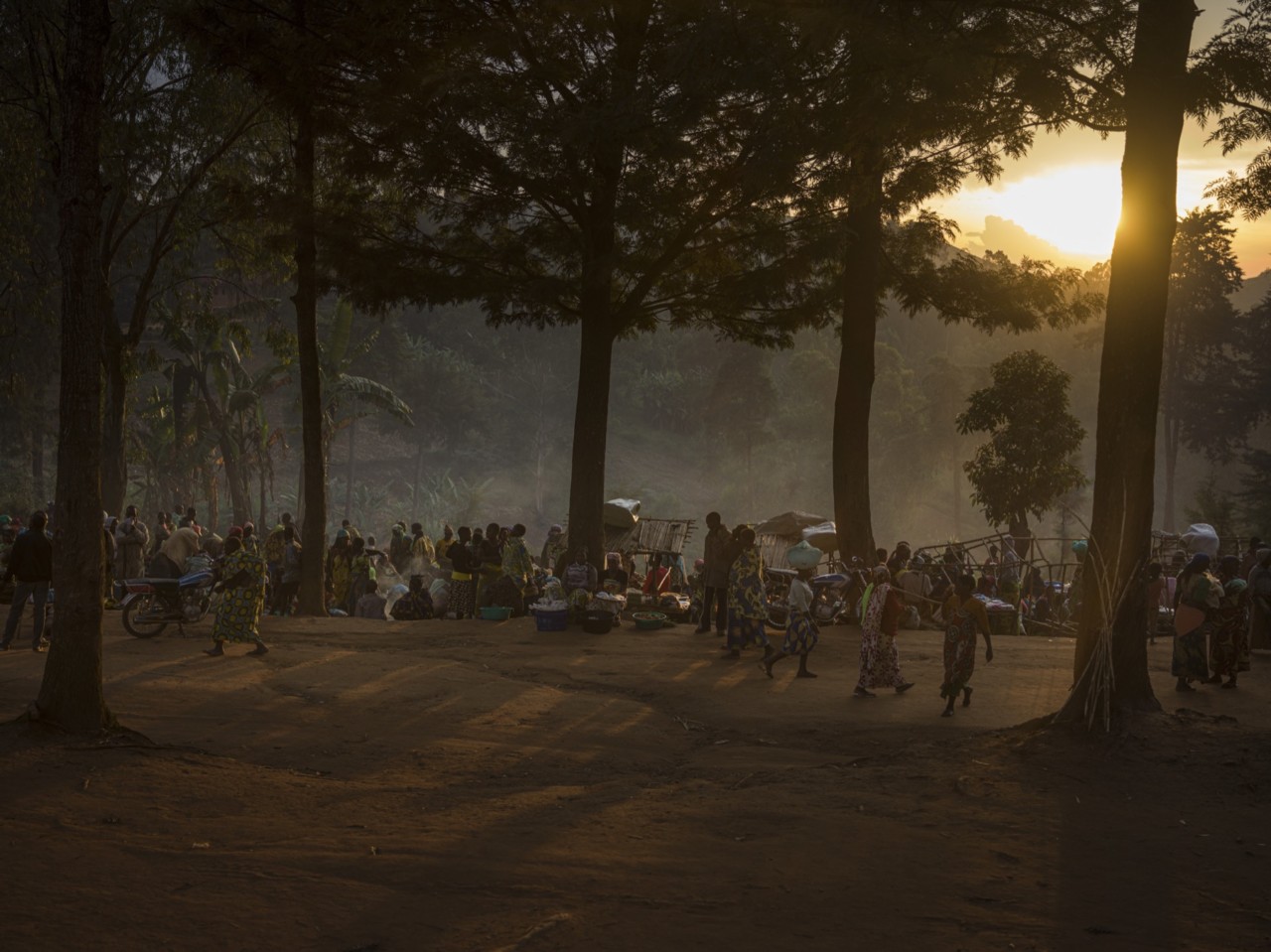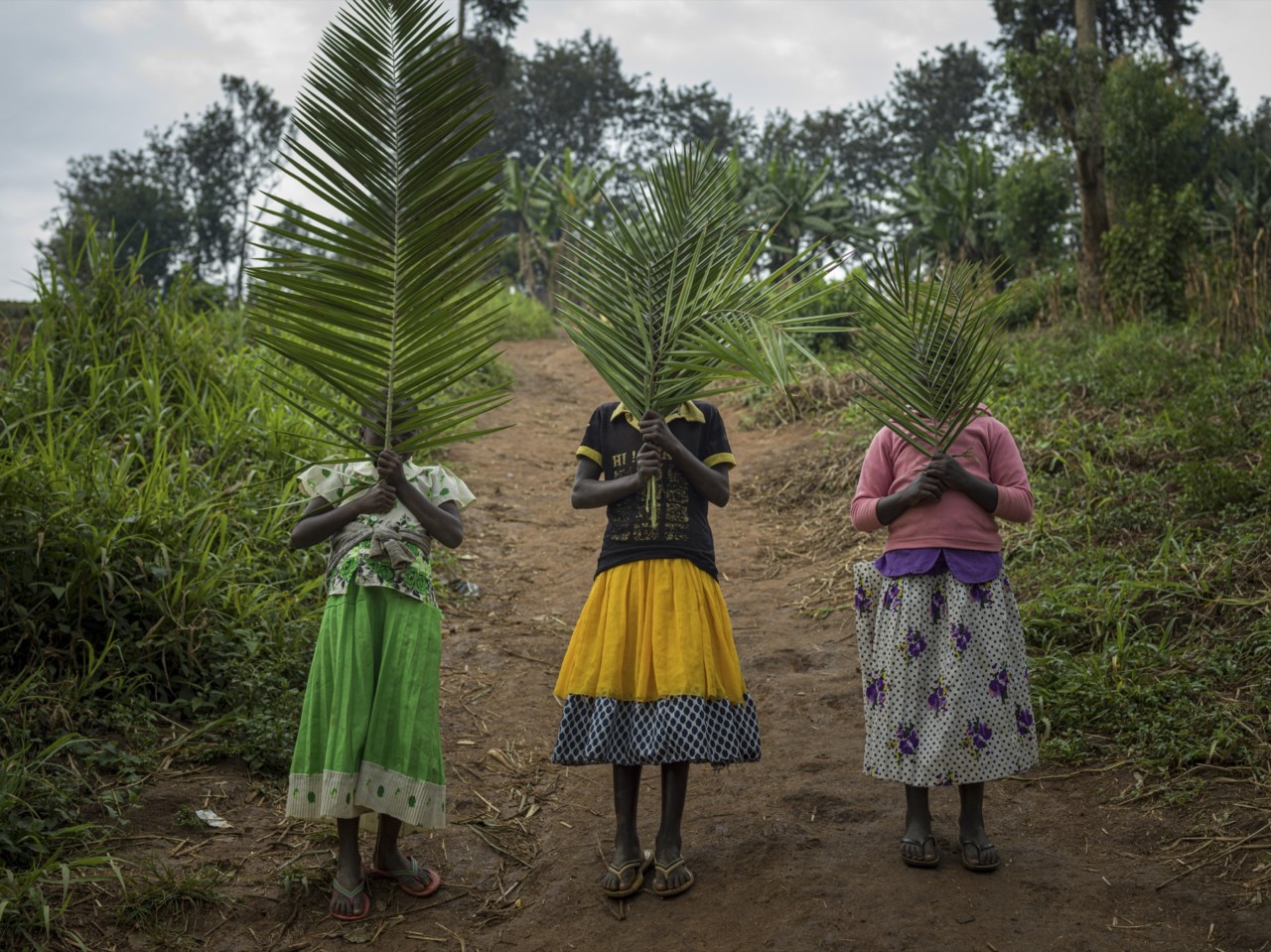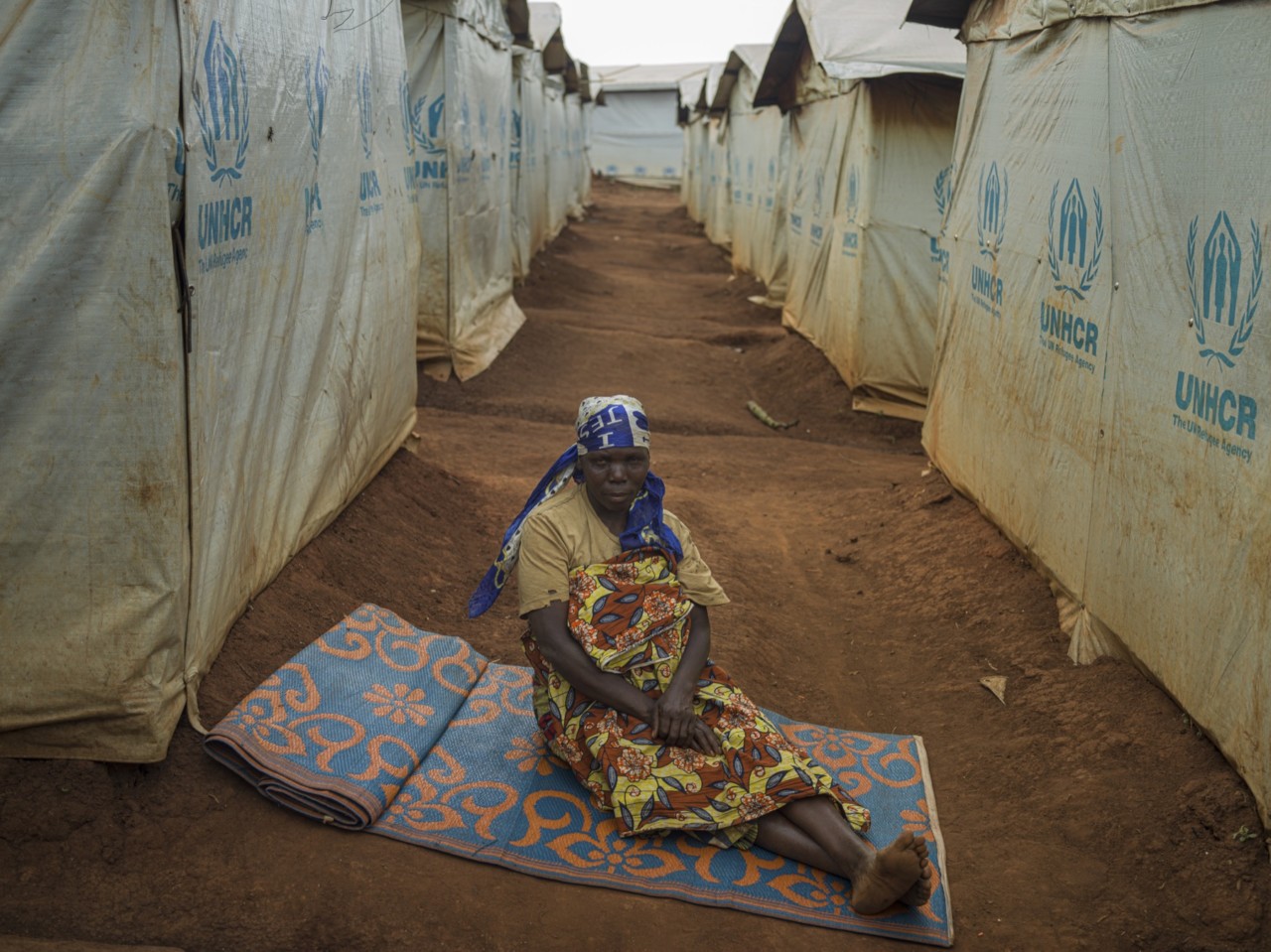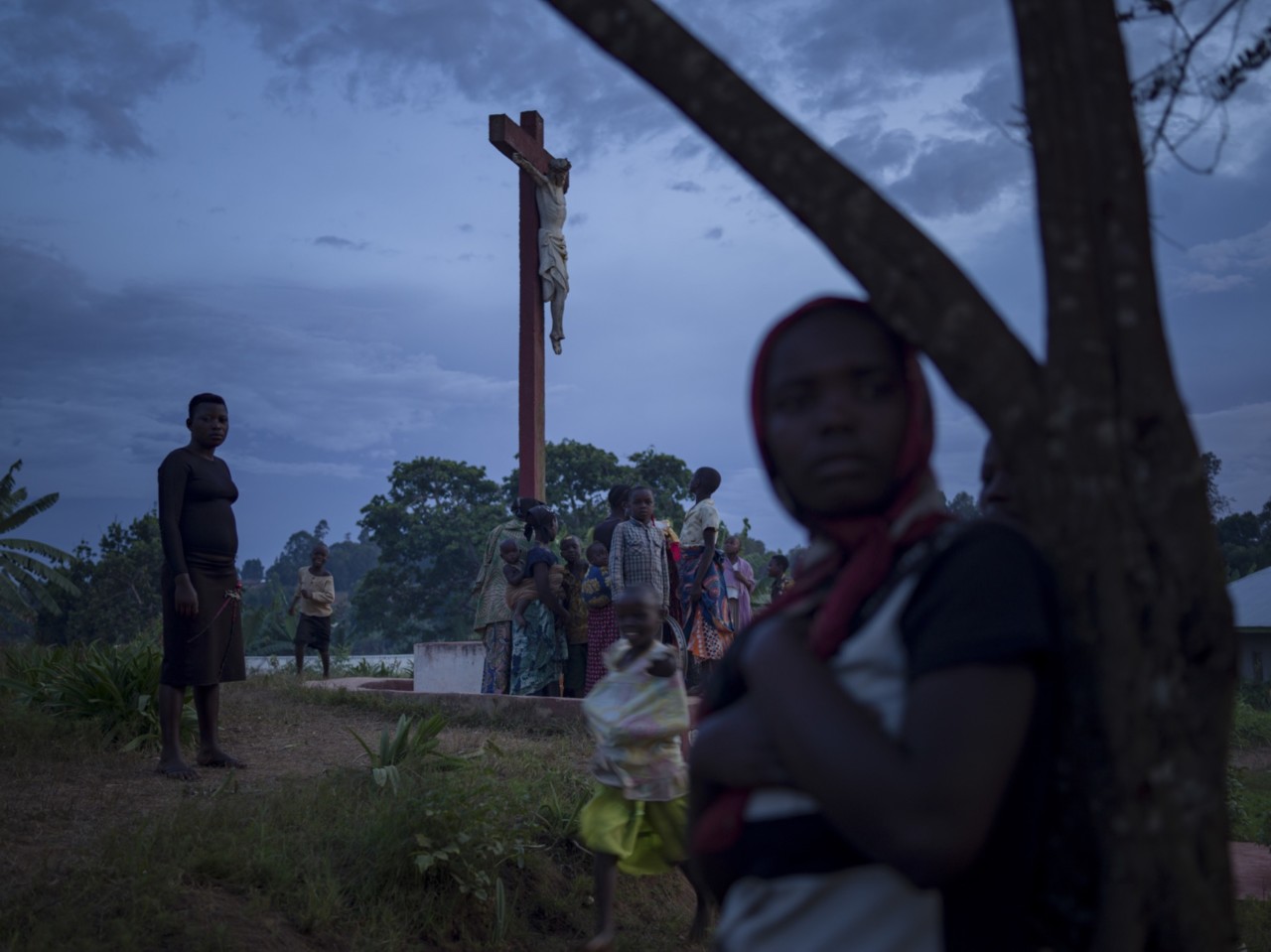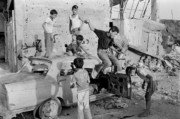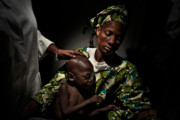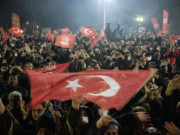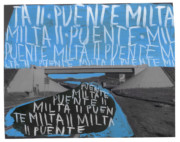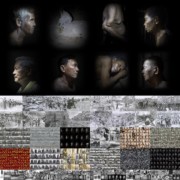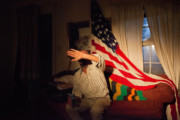Witnesses: Newsha Tavakolian, A Glimmer Through the Crack
Newsha Tavakolian shares reflections on her time spent in the Democratic Republic of the Congo
In the northeastern province of Ituri in the Democratic Republic of the Congo (DRC), more than one million people have been displaced as a result of the violence that has plagued the region since 2017. Looting, fires, violence and abuse have forced families to leave their homes and seek refuge in camps that don’t provide much more security. Displaced people also face the threat of epidemics, infections due to the lack of hygiene services, and sexual violence. They depend on humanitarian aid to survive, but there are very few organisations on-site to help. Photographer Newsha Tavakolian went to Ituri to document the lives of displaced women and the routine violence they face. Here, Tavakolian describes the scenes she encountered.
Please note that the text recounts incidents of sexual violence.
Story by Newsha Tavakolian
Co-authored by Sara Kazemimanesh
The Spring equinox—Nowruz, the Persian New Year—is in half an hour. They say whatever you’re doing at the exact moment the sun finds herself right above the celestial equator defines how your life will unravel in the coming year. And I am sitting in a car, traveling to Drodro, on commission for Doctors Without Borders (MSF) for a project about sexual violence. Those who ride in the passing cars wear makeshift head covers to protect themselves from the cloud of dust and dirt that surrounds moving vehicles. We are driving on a muddy trail that squelches underneath the tires, a road that winds and tangles, like a snake shedding its skin.
We stop yet again at another checkpoint, avoiding the gawking bloodshot eyes of the Cooperative for the Development of the Congo (CODECO) rebels, some of whom are just boys, armed and dressed in military gear. The back of a callused finger runs against my bicep, and I chase the glimmer of light that bounces off the single horizontal crack in the windshield. The shrill of the pigs will not stop. I ask the driver to go faster, so we can leave them behind. The road splits, one branch leading to the Lendu tribe, while we turn right toward Drodro, which houses thousands of the displaced Hema people. Life goes on outside the huts, with the harvest and drying of cassava the most prominent image the eye can see.
We arrive at the village, and even though Sunday mass is a few days away, there is a gathering of people milling around a crucified Jesus on a tall cross. We cannot stop to investigate as we need to move on toward the Drodro hospital, where I am supposed to visit the malnourished mothers and their young children. Under the mosquito nets, small children wail and cry. I meet a little girl who doesn’t smile and—with help from one of the doctors—I ask her to become my assistant. She holds the light for me as I shoot. Outside the building, residents have gathered with their meagre supplies of local crops—cassava, bananas, and pineapples—making meals for their relatives staying at the hospital.
Despite its rich natural resources—oil, diamonds, cobalt, and gold in particular—the majority of the population of the Democratic Republic of the Congo (DRC) is extremely impoverished, with millions of people being displaced and exposed to physical and sexual violence on a daily basis. Unfortunately, the violence is unleashed by members of the military and ethnic militia, whose impunity inspires similar acts by members of the public—more specifically men—with their main victims being women and children.
In the Ituri region in Northeastern Congo, the conflict is especially severe between the farming communities of the Lendu people and the pastoralist communities of the Hema people. When three young wounded Lendu are brought to the Hema camp by members of MSF to receive medical aid, members of the Hema community are quick to react. They gather around the MSF van, threatening them with violence if they treat members of the rival tribe at the camp.
Mamma Justine—the president of Synergie des Femmes pour les Victimes des Violences Sexuelles (SFVS), a coalition of women activists who support victims of sexual violence—tells me that the normalisation of sexual violence is not merely a product of the unstable political condition in Congo. She goes on to tell me about the existing cultural context that inspires the objectification of women, such as a long-standing tradition that prompted men to take their desired partner and lock her up in a room—effectively abducting her without her consent—before speaking to her family about their possible union. Mamma Justine tells me that the situation is further complicated by false beliefs and superstitions that are used to justify sexual violence. Some even believe that having intercourse with a virgin girl clears the man’s body of the Human Immunodeficiency Virus (HIV).
The sunset is hauntingly beautiful when I meet Giselle, a tall 16-year-old girl with very short hair, wearing an off-white shirt, a long skirt, and a pair of plastic slippers with the word “VIP” printed on them. She says that after giving birth to her youngest sibling, her mother lost her sanity and disappeared. Then, one night in 2018, the rebels raided their village, killing everyone including her father. Giselle and her eight small siblings were among the few who survived, which meant that she would have to care for them. Two months before, as she was fetching water with five other women, Giselle had fallen behind because she was walking slowly, carrying the heavy water jugs. That is when she was grabbed by three armed men. They forced her to undress, holding a gun to her head so she would not make a sound during the assault. They raped her one by one, while the two others watched the road.
Bruised and in shock, Giselle got back on her feet to walk the rest of the way. A man on a motorcycle saw how she struggled to walk and offered her a ride back to the camp. At the camp, an elder woman saw Giselle’s state and upon hearing of her ordeal she urged her to go to the health centre to seek help. Unable to stand or walk properly for some time after the assault, Giselle had no choice but to continue to care for her small siblings.
Giselle tells me that after this violent assault by three men, her very first sexual encounter, she wants nothing to do with men anymore. She has vowed to herself that she will never marry, but continue her education so she can care for her siblings and help the women in her community. She speaks of her melancholia and her vast loneliness, telling me that she feels so helpless without her parents, and that she misses her mother every day.
I explore the village, in awe of the beauty that surrounds me. The sky seems so vast here, yet feels extremely close to the earth, as if you can grab the cotton-candy clouds merely by raising an outstretched arm. Once again, I find myself near the tall crucifix and the still-growing crowd that moves around it. I ask someone the reason for the peculiarly impromptu gathering. They tell me that Jesus’s right foot has been broken, pointing to the crimson liquid that oozes out of it. The crowd seems to believe that Jesus is bleeding. I cannot linger around the bleeding Jesus, as I need to move on to the health centre.
I come across Dr. Jean-Claude at the Drodro Health Center, where there are more women and children to care for than they can manage. The health centre was supported by an NGO called ACF (Action Contre la Faim). Members of the Hema tribe had recently set fire to their base, burning their vehicles and forcing the staff to evacuate with help from MONUSCO (Mission de l’Organisation des Nations Unies pour la stabilisation en République démocratique du Congo). Now ACF is no longer doing relief work in the area, which means that the women and girls who come to the health centre will need to pay for the medical aid they so desperately need.
I ask Dr. Jean-Claude if he can communicate in English. He tells me that he can, to an extent. I ask him if he knows where I can find someone who works with victims of sexual violence. He tells me he himself has been treating these women for the past 10 years, adding that many of them are assaulted by men they know, not necessarily the rebels, but men from their own families or other men in their communities. Many of the victims are abandoned by their families; some are left with no choice but to seek shelter at the homes of the very men who have assaulted them; and some are sent to nearby camps, which consist of a cluster of huts with cement floors, equipped with nothing but a limited assortment of cookware.
There is not much to do at the camps. Children are half naked or have limited clothing, the older ones helping their families by harvesting crops or fetching water. Women bear the brunt of the responsibilities however, from fetching water and collecting food and firewood, to working in neighbouring fields. Most of the sexual assaults happen during their trips to provide for their families. It’s ironic that the very grounds where they are sent after their violent experiences become the sites of further violence.
Dr. Jean-Claude tells me that sexual violence is indeed a weapon of war—a weapon of mass destruction—but these men use and abuse women’s bodies to express their frustration as well.
“But why doctor? Why do they do this?”
He tells me that men are frustrated and powerless without jobs or a means of production, so assaulting women is their way of claiming some form of power. I think of one woman who was assaulted because she did not have the 500 Francs—less than one US dollar—demanded of her.
It is such a stark contrast: this giving land, fertile, rich with tropical crops and beautiful flora, but home to such unfathomable violence.
I leave the health centre after Dr. Jean-Claude promises to put me in contact with a local relief worker who works closely with victims of sexual assault. There are so many women at the marketplace, moving about, making food, as their small children hold on to them—while the few men who are around don’t do much.
Congo is like these beautiful women, violated constantly, giving to everyone who wants a piece of her dress, a piece of her body.
I pass girls dressed in school uniforms—white shirts and navy skirts—walking shoulder to shoulder with the boys who hold stacks of textbooks. They all walk by the deep green woods. It’s monsoon season and shiny banana leaves still drip from the recent rain, and I cannot help but wonder who among the crowd could unleash violence on these girls? Who—if anyone—is going to protect them?
Dr. Serge is a psychologist who has been leading a newly established program that aims to improve the mental wellbeing of victims of sexual violence in the region. He has been working with these women for the past year and tells me that in addition to the two most common emotions experienced by these women, namely shame and guilt, there are two general reactions to the experience of sexual violence here: complete mental breakdown, or denial in the interest of forgetfulness.
I am reminded of the bishop’s words, when I asked him about the women and girls who waited their turn to confess.
“Why are they here, father? What is it that they so desperately wish to confess?”
“There are things that burden them that they can tell no one but God,” the bishop tells me.
How ironic that some of them are here to ask God for forgiveness for crimes committed against them.
“But trauma does not fade away. It festers inside the mind only to come back with a stronger, more destructive, force,” says Dr. Serge.
I ask him about the victims’ families: “Do they support the girls?”
He tells me that some do, and it helps in overcoming the inevitable shame entailed in being assaulted. But more families tend to banish the victims, leaving them with little choice but to live in self-exile at nearby camps or even seek help from the family of their assailants. How lonely and afraid they must feel, if their only refuge is staying with the same people who have turned their lives upside down.
I stand near the hospital waiting for them to take my temperature and allow me to enter. The broken thermometer keeps showing the number 32, as if detecting a dead body. I hear the shrill of screams and as I enter, I see women, perhaps ten of them, sitting on the stairway and wailing with their arms outstretched toward the ceiling, mourning a fallen soldier. Another soldier wields his G3 rifle as he explains what has happened. But my interpreter tells me that he overheard them saying that the soldier died by suicide.
They ask me if I want to see the body.
At the end of the corridor, the women gather around the body. Wrapped in white sheets, his eyes and mouth are closed as if he is in a deep slumber. The women throw themselves over the body and continue to wail. A few militia members—friends of the diseased—also join the crowd, crying for their fallen friend. I have no way of identifying the real cause of death. But what difference would that make? These people have lost someone they have loved dearly.
At the health centre, I meet with Honorine, the 48-year-old local relief worker, who has been working there for the past three years. Honorine shows me a notebook filled with girls’ names, telling me that every day at least five or six victims, mostly underage girls, many of them pregnant, seek help. Many of these girls are additionally subjected to physical abuse by their own husbands. Honorine says that at the camps they encourage the women to come by the centre to receive care if they are assaulted. The health centre offers check-ups, as well as medical care to prevent or deal with unwanted pregnancies and infections from STDs, especially HIV. As we walk along the corridor, I see a packed room of perhaps 15 pregnant women, all waiting for their turn to be checked over by the only attending midwife.
I ask Honorine why there is so much sexual violence. She shares Dr. Jean-Claude’s opinion, that rape is a means through which men exert power and seek revenge from the cruelty of life. For the rebels of course, rape is a way to take the power away from the local men, tarnishing their honour by violating their women. I think about how the woman’s body is the site for this act of revenge-seeking. Many of these women are subjected to additional abuse because of the shame associated with their assault. Many are banished from their communities.
Once again I come across the tall crucifix. This time, in addition to his right foot, Jesus is also missing both arms.
My interpreter, Alphonse, tells me that the removal of the two additional limbs is an intentional act to prove to the crowd that the liquid is not blood, but the oxidized metal of the inner skeleton of the sculpture mixed with rainwater. I ask the 48-year-old resident bishop how he feels about the bleeding Jesus and the crowd it has attracted. He tells me that this kind of superstition is dangerous for the community and that he intends to put an end to the spectacle. During the Sunday service, with the church packed with attentive parishioners, the bishop warns the crowd of the ill effects of false beliefs and submitting to superstition. But outside, the crowd gathered around the crucifix seems unbothered by this rationale.
The next time I walk past the tall cross, the mutilated bleeding Jesus is gone, and so is the crowd.
Back at the health centre, I meet Gracian, the 52-year-old attending midwife, who has been working here since 2010. In a dark room with blue walls, Gracian sits at a desk covered in papers, documents, and files. The light from the small window illuminates her cramped workspace as she calls in the mothers-to-be one by one. I talk to her about the pregnant and displaced women that she cares for.
“What is the most pressing issue for these women?” I ask Gracian.
She tells me that right now, they need food and clothing more than anything else. Most of them only have one set of clothes—the ones on their backs—and as they fall pregnant, naturally their clothes will not fit them anymore. They are not well-fed, if at all, and as a result, they bear small, malnourished infants.
The women sit listening in silence, without moving or doing much. I notice two of them in particular because they look extremely young to be pregnant. You cannot tell whose pregnancy is the product of sexual violence.
I go to bed in a bare room, protected by the flimsy mosquito net that surrounds me. It has been two years and 11 days since my father’s passing. All this time, not once have I spoken to or seen him vividly in my dreams. The moon is so big tonight, as if it hangs lower in the velveteen sky. The silence stretches over the camp area, and just as I fall asleep, my father is there, gently shaking me awake.
“Dad, what are you doing here? Aren’t you dead?” I ask him.
“So I am,” he replies. “Let’s go for a stroll.”
As we walk along the muddy trail under the full moon, my father talks to me. I ask him questions to keep the conversation going. I ask him if he is happy, and he says he is. He tells me to keep a diary of all my thoughts every day.
“But why, dad?”
He takes out a small notebook from his pocket, flipping through its pages and showing me his notes and daily tasks scribbled in it: “Do you remember this?”
“Yes, I do,” I tell him.
In the morning, I am awakened by his loud whisper near my ear, and I wake up to find him gone. I am so confused when I wake up, as if I’m surrounded by a heavy fog, like the thick mist that covers the horizon in Ituri. I think of how protected I feel by the memory of my father, even after his passing, and how thousands of the women in Congo never find out what that feels like.
At the Drodro health centre, while they wait their turn to receive the care they need, the women sit on the chair I have placed against the wall. They find little ways to keep themselves busy and distracted while they speak. The girl in a blue skirt and black top scratches the back of her hand. In the darkness of the blue exam room, the most noticeable details are the colourful accessories that adorn their frail bodies: a green skirt, a pink bracelet, a red scarf, a butterfly brooch, and a plunging necklace with blue beads. They do not look directly at me, but I see and remember all these individual details, as does my camera.
When I first arrived in Drodro, I was worried that the women would avoid me, but now I am amazed that they seek me out so they can share their stories, knowing that I am a photographer and not a relief worker. Most of them—if not all—are led to believe that they should be ashamed of themselves for having been victimized. They live with guilt for the horrific experience over which they had no control. Yet, you cannot box all these women and girls together. No matter how common it might be, the collective experience of violence does not erase its individual impact. Each of these women and girls deserves to be heard.
Noella Alifwa and her colleagues at Radio SOFEPADI are here not only to listen to these stories, but to utilise them to raise awareness. Noella and a group of other women worked at a radio station here about 21 years ago. Together they founded an NGO through which they started to discuss sexual violence. Noella tells me that their collective has four major objectives:
1) To familiarize women with their rights
2) To work towards creating peaceful communities where women can feel safe
3) To advocate for better leaders
4) To teach women how to care for themselves, both in the immediate aftermath of being assaulted, and from a more long-term perspective.
Annually, their NGO works on over 50 cases of sexual assault, while continuing to reach out and offer help. They do not believe that change can happen overnight. On the contrary, they are aware that because of the cultural context that objectifies women, and due to a lack of a reliable legal system, slow and steady reform is the way to go.
I cannot help but be reminded of the woman who repeatedly interrupted MSF announcements that shared information about STDs and unwanted pregnancies caused by rape, declaring them to be blasphemous and wrong. I cannot blame her, nevertheless. Because long-standing beliefs—no matter how harmful they are—require time and effort to fade away.
When I pass by the tall cross for the last time, Jesus is back, no longer “bleeding” but with his formerly severed limbs awkwardly reattached. This time there is no crowd.
Back on the winding dirt road, women walk along the trail, their bodies burdened by the heavy jugs of water and the thick bundles of branches they have to carry back to the camp. Most of them are dressed in colourful clothes made of African fabric (pagne) and adorned with the words huit mars (8th March) and journée internationale de la femme (International Women’s Day).
As I watch their swift progress, I wonder if a day will come that their 8th March dresses are not the only clothes they own, a day when they can be aware of and empowered by what the 8th of March represents.


